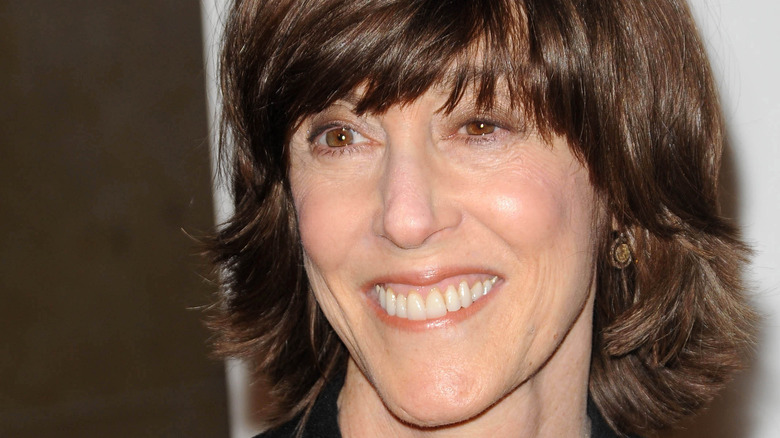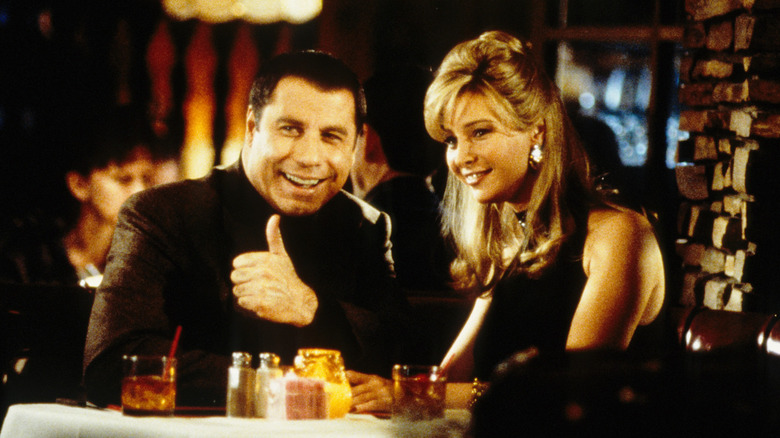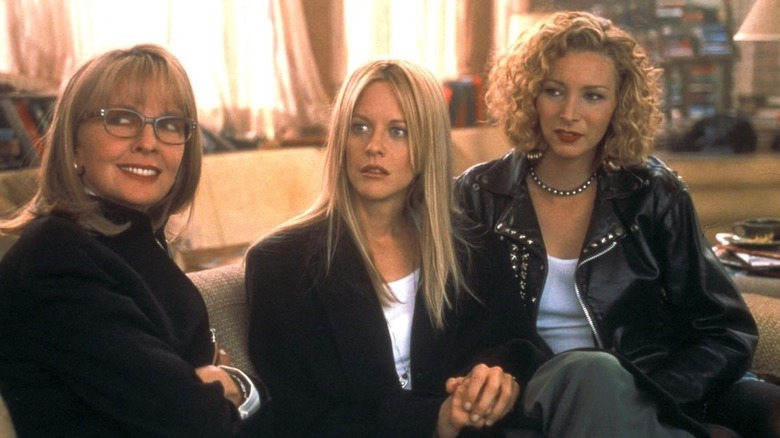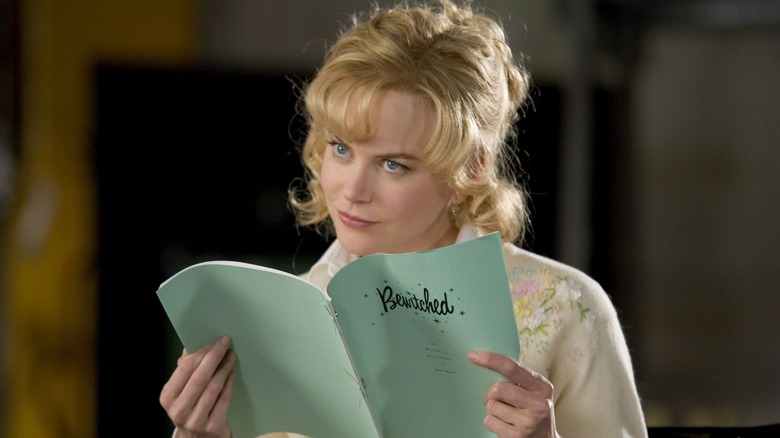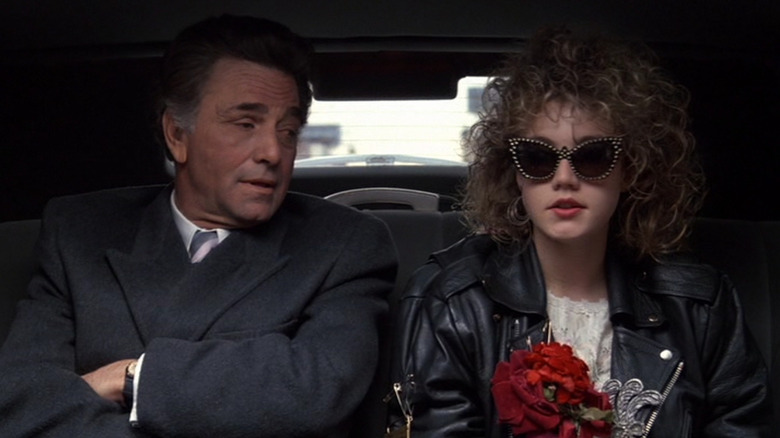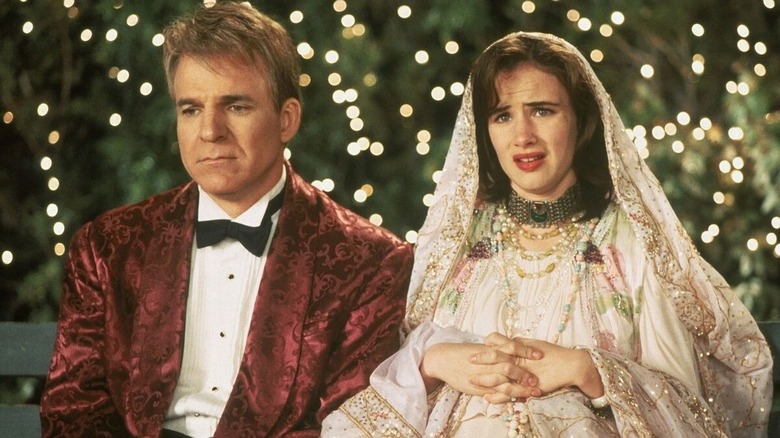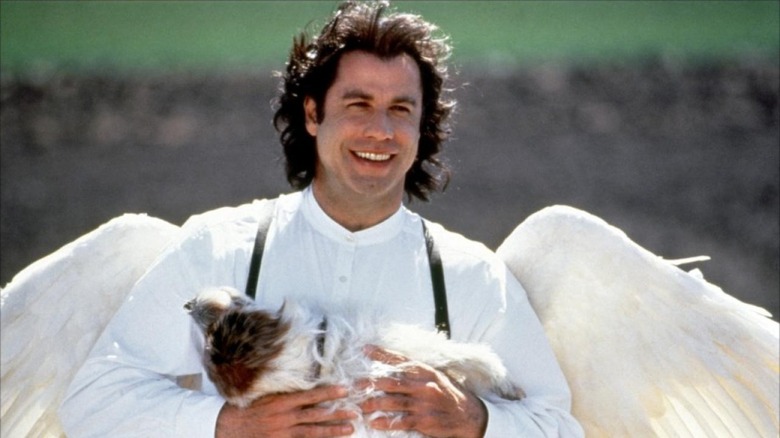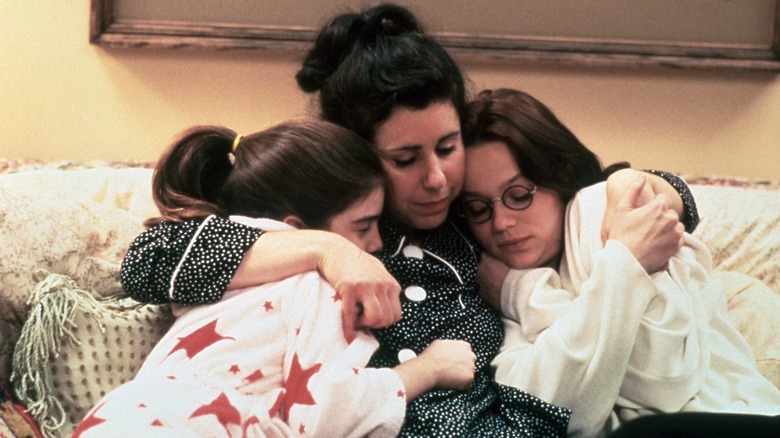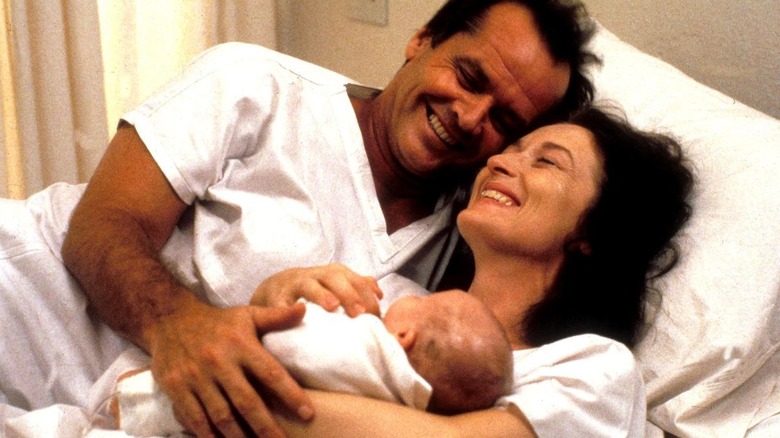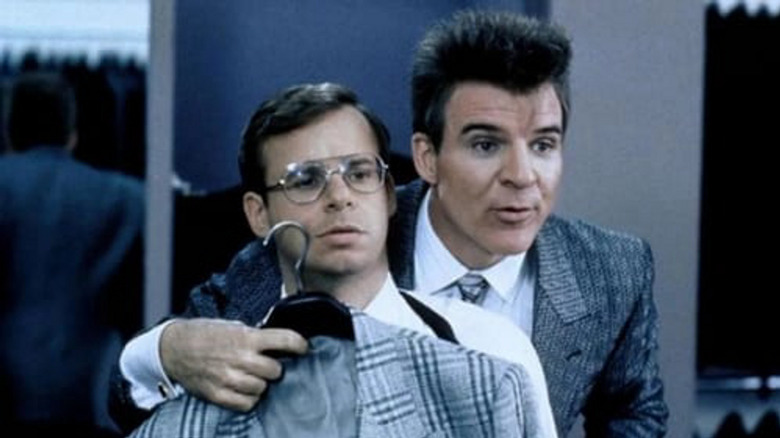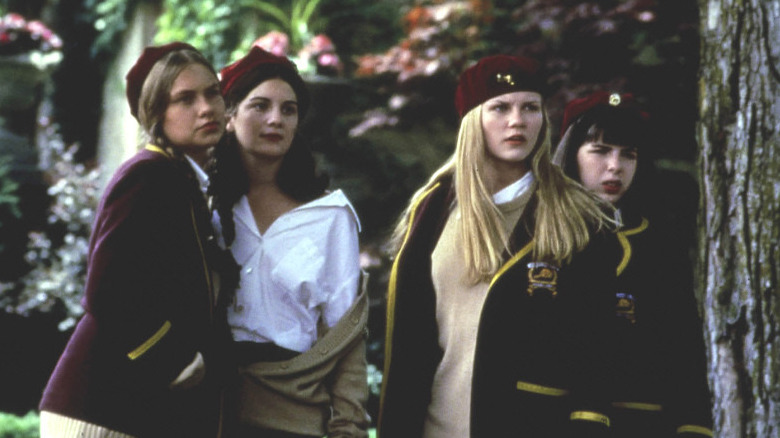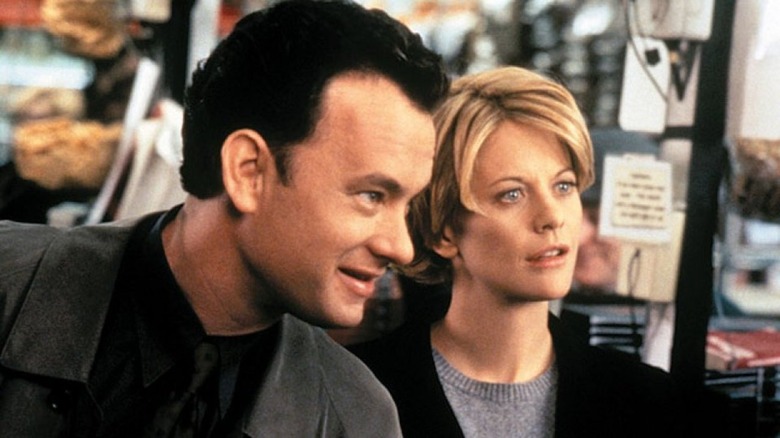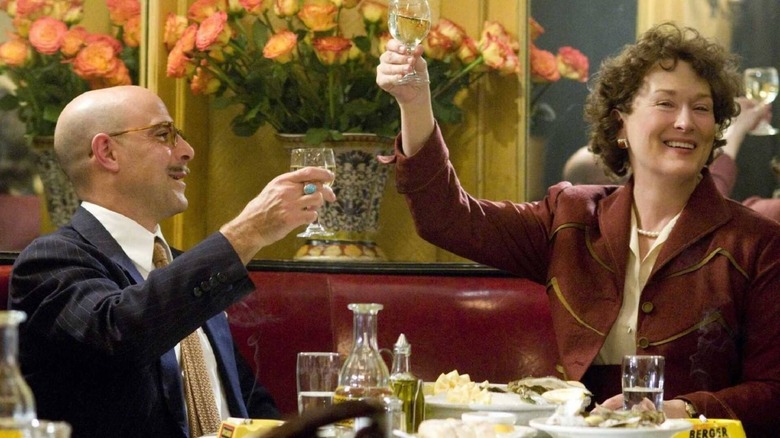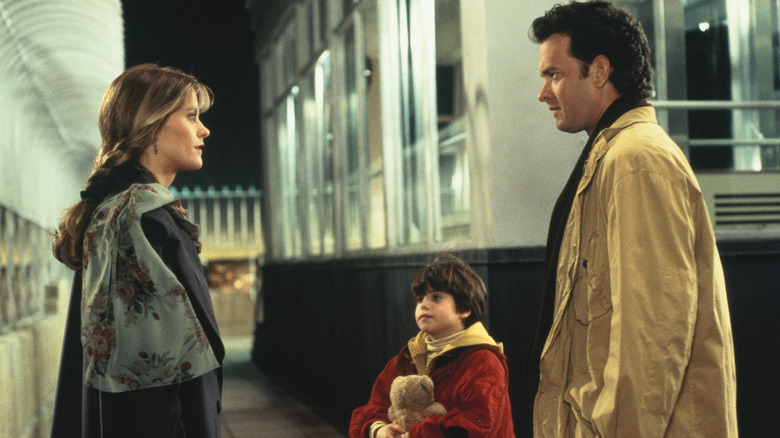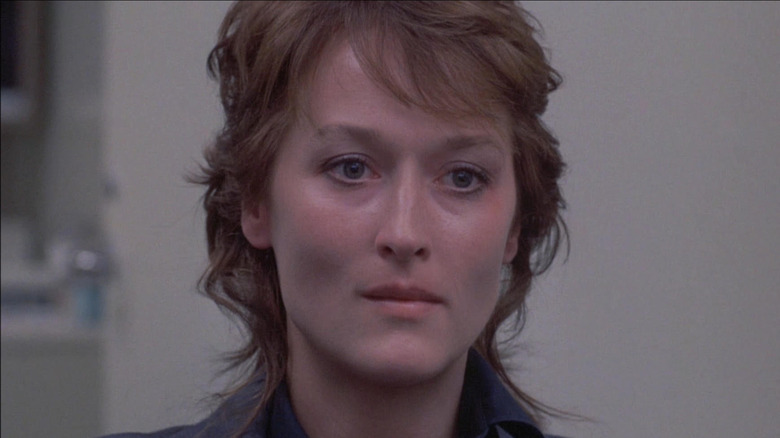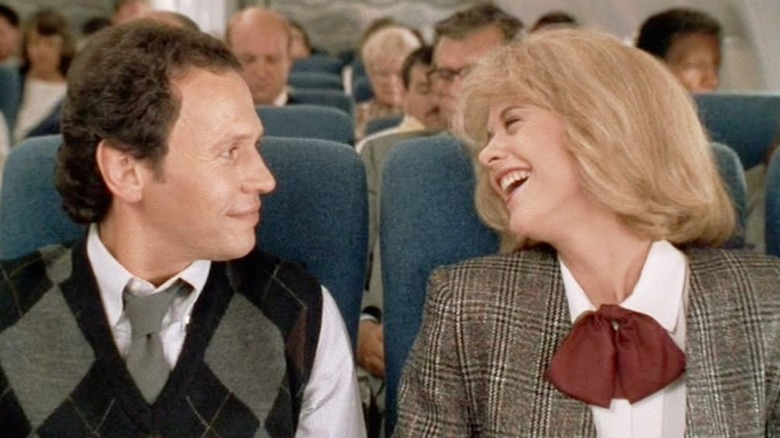Every Nora Ephron Movie Ranked
Nora Ephron had a way with words. Not in a trite, empty compliment sense. She could mold them, manipulate them, and swirl them around in the soup of her mind until she produced just the right combination of sweetness and bite. She understood how language worked, on the page and in person, and how the little phrases we incorporate into our vernacular can mean much more than they seem. She played with interactions until they were outrageously funny in shocking, spontaneous, and sometimes absurd ways.
Luckily for all of us, she brought this gift of hers to the silver screen as a writer and eventually branched out into directing. Sadly, Ephron passed away in 2012, but we still have the films she left us to remember her amazing talent and — by extension — her. There are only 15 in total, but we've ranked them from worst to best based on ratings from IMDb and Rotten Tomatoes (averaged together), with box office receipts breaking any ties. So let's get to them!
15. Lucky Numbers (2000)
"Lucky Numbers" is the one and only movie Nora Ephron directed that she didn't also write in some capacity, and that might've been the problem. Well, that and the fact that writer Adam Resnick's only other screenplay film credits are "Death to Smoochy" and "Cabin Boy," two movies that are polarizing by way of their dark and subversive humor. Nora Ephron famously had, per a 2009 article in the "New Yorker," an "urge to put a happy ending on every story." These two aesthetics — happy endings and black comedy — don't really mix, and it put the film at a disadvantage from the start.
The film does reunite Ephron with John Travolta (who she directed in 1996's "Michael") as well as Lisa Kudrow, who was also starring in Ephron's semi-autobiographical "Hanging Up" that same year, so there was some hope of her bringing out the right tone from her actors. Unfortunately, (according to Roger Ebert) she missed the mark on this one. Others agreed. "Lucky Numbers" has an IMDb rating of 5.1 and Rotten Tomatoes scores of 22% (critics) and 19% (audience), which averages 3.1 out of 10. Taken with a box office loss of more than $52 million, this flick makes our bottom spot.
14. Hanging Up (2000)
Based on the novel by Nora Ephron's sister Delia, "Hanging Up," is the tale of three sisters played by Lisa Kudrow, Meg Ryan, and Diane Keaton (who also directed) facing the illness and impending death of their father (Walter Matthau in his final role), despite never having been close to him. It's semi-autobiographical in the same way Ephron's novel "Heartburn" was as well as her sister Amy's novel "Cool Shades" is. Being so close to the material, it makes sense that Ephron wouldn't want to direct it herself, though the official story is that she committed to "You've Got Mail," which was filmed at the same time but, due to the wiles of Hollywood, was released 14 months earlier.
Sadly, be it from that lack of personal connection or Keaton's relatively inexperienced hand at the direction (or something else entirely), the film lacked the heart required to offset its bitterness. "Hanging Up" also has a score of 3.1 out of 10, averaging from its 4.8 on IMDb and Rotten Tomatoes scores of 12 and 34%, but its overall box office loss of just over $9 million settles it into our number 14 spot.
13. Bewitched (2005)
"Bewitched" was always going to be a hard sell. The classic sitcom was beloved both by those who saw it originally and those who came to it years later in syndication. Perhaps sensing this would be an obstacle, Nora Ephron's film remake leans into this idea with an "inside baseball" approach. To wit, it's a film about a TV remake of the beloved classic sitcom, complete with all the Hollywood brouhaha. Where it kind of loses the thread is that the actress hired to play Samantha (Nicole Kidman) is secretly a real witch looking to leave witchcraft and live a normal life.
It's hard to say whether a straight reboot of the original show, updated for modern audiences and expanded for film, would've been a better option than the metaphysical one, but Ephron punts by trying to do both. The result is muddled and unsure of itself while, according to David Edelstein at Slate, also coming off as "smug and superficial." Without any magic, its IMDb rating and Rotten Tomatoes scores average 3.3 out of 10, bringing "Bewitched" in at number 13 on our list.
12. Cookie (1989)
In the Girl Power world of the late '80s, "Cookie" is here to show that chicks can be mobsters too. It's actually not a bad concept for a mob comedy, because it upends the very boys-only structure of most gangster stories by exploring the nature of a Mafia family within and around a traditional family. There are father-daughter conflicts and obstacles to traverse in addition to criminal enterprises, but the film itself does not live up to the concept. As Roger Ebert said in his review, "The last act of the movie is all plot and event, which betrays how thinly the main characters have been written ... the whole movie is hazy."
Seeing as character development through dialogue was always one of Nora Ephron's strengths as a screenwriter, this review is especially disappointing, but the highlight performances by Brenda Vaccaro (as the mob wife) and Dianne Wiest (as the mob mistress) indicate that perhaps it's just that Ephron's strengths lie with writing characters at certain stages in life and love. The eponymous Cookie (Emily Lloyd) also feels — and looks — somewhat derivative of director Susan Seidelman's earlier hit "Desperately Seeking Susan." Like a lot of things from that era, some of this film hasn't aged well, adding to the sense of discomfort. It's ill-fitting overall, and that's reflected in its score of 3.5 out of 10, averaged from its IMDb rating of 5.4 and Rotten Tomatoes scores of 13% and 38%. "Cookie" lands in the number 12 slot.
11. Mixed Nuts (1994)
A flailing, forgotten, and darkly funny Christmas movie, "Mixed Nuts" embraces neuroses of all shapes and sizes. It's the holiday season when many people's thoughts turn to despair, so this movie takes its audience inside the workings of a quirky crisis helpline seemingly run out of main character Philip's (Steve Martin) apartment, and its ragtag assortment of eccentrics that work or socialize together.
These adorable weirdos include Rita Wilson being mousy, Liev Schreiber in drag playing a trans woman, Adam Sandler doing his mid-90s Adam Sandler thing in a gondolier's outfit with a ukulele, Madeline Kahn being the absolute best, and more! Deadpan comedian Steven Wright calls the hotline from a malfunctioning payphone for the purpose of a suicide joke that barely teeters on the edge of being tolerable, and only then because the film is openly embracing gallows humor. It's in the trailer, so audiences couldn't say they weren't warned. Panned upon its release, a 2014 Esquire look back on it said "it was ahead of its time" and proclaimed it "the best holiday movie you've never seen." Maybe it's better than people thought in '94, or maybe it will always be due to its subject matter, but right now its IMDb rating and Rotten Tomatoes scores average 3.8 out of 10, putting "Mixed Nuts" at number 11.
*If you or anyone you know is having suicidal thoughts, please call the National Suicide Prevention Lifeline by dialing 988 or by calling 1-800-273-TALK (8255).
10. Michael (1996)
The idea of a heavenly being coming to Earth is not a new one, and "Michael" was one of three movies to come out in 1996 that featured just that. (The other two were "The Preacher's Wife" with Denzel Washington and Whitney Houston and "An Unlikely Angel" starring Dolly Parton.) While these types of stories usually involve the angel having a mission to heal or mend something for a particular human, Nora Ephron's "Michael," adapted and rewritten from the original screenplay by Jim Quinlan and Pete Dexter, features an imperfect angel interested in worldly pleasures from food to women and everything in between.
Even though Ephron and her sister Delia rewrote this script themselves and Nora directed, there's once again a certain disconnect between her direction and the story, which the New York Times referred to in their release-week review as "wafer-thin," writing that, "The movie is so busy applying cute touches to everything and everybody that it forgets to devote enough attention to the souls Michael has come down to save." John Travolta is at his most charming, but at best the film comes off as merely innocuous. Taking its IMDb rating and its Rotten Tomatoes scores into account, "Michael" winds up with a 4.6 out of 10 and occupies slot number 10.
9. This is My Life (1992)
Nora Ephron's directorial debut "This is My Life" could've been a make-or-break opportunity, and the sort of middling response it got across the board could've spelled disaster before it even got off the blocks. However, Ephron was well and fully established as a powerhouse screenwriter, and already had two Oscar nominations and a BAFTA Award under her belt to prove it. So studios knew she could deliver and therefore might've been more inclined to forgive a mild response knowing there was always the promise of a cultural phenomenon. Case in point: The very next movie Ephron wrote and directed after this one was "Sleepless in Seattle."
Plus, "This is My Life" is a story about women, young and old. As Roger Ebert put it, "It's hard to imagine this material being about a man," and studios regularly underestimate the appeal of just about any story not centered around white men. They do this now, never mind 30 years ago. So "This is My Life" was under-watched and underappreciated and probably misunderstood by a lot of the moviegoing public simply because it centers around the question of whether or not a mom gets to chase her dreams. It has an IMDb rating of 6.0 and Rotten Tomatoes scores of 36% and 48%, which amount to a 4.8 out of 10 overall and the ninth spot in our countdown.
8. Heartburn (1986)
In 1980 Nora Ephron and Carl Bernstein (he of the Watergate exposé) ended their four-year marriage after she, while pregnant with their second child, caught him cheating on her with a mutual friend. It's an honest-to-god nightmare situation that some women will cross themselves and spit three times to avoid, even if they've just heard about it secondhand. Three years later, Ephron published her novel "Heartburn," a roman à clef of the experience, and three years after that it came out as a film starring Meryl Streep and directed by the incomparable Mike Nichols, both of whom Ephron had worked with in her first big Hollywood movie "Silkwood" a couple of years earlier. By adapting her own novel into the screenplay for this one, Nora Ephron got the better of her ex by miles. (She also told anyone who would listen who Deep Throat was.)
"Heartburn" is just as sharp, as bitter, as devastating, as infuriating, and as funny as one would expect Ephron's exploration of such a painful event would be, but what makes it so authentically felt also can make it very unsettling, so it's no surprise that it's IMDb rating and Rotten Tomatoes scores bring this middle-of-the chart entry (we're in the eighth place) with the extremely middle-of-the-road score of 5.1 out of 10.
7. My Blue Heaven (1990)
In seventh place with the biggest point jump on the list (up to 6.4 out of 10, based on ratings from IMDb and Rotten Tomatoes), "My Blue Heaven" seeks to answer the eternal question: What if the witness protection program was bumbling and hilarious? It's an issue so pressing, they put renowned funnymen Steve Martin and Rick Moranis on the case. Martin is the (literal) wise guy and Moranis is the straight man, with Joan Cusak playing the even straighter foil. It's light and goofy, and there's even an O. Henry "Gift of the Magi" moment around working undercover.
Critical reception was mixed. Caryn James of The New York Times, in reference to the quality and variety of roles Steve Martin has taken on over the years, said "'My Blue Heaven' is definitely one of his blander works." Then again, she offered up Thanksgiving holiday classic and 92% Fresh "Planes, Trains and Automobiles" as emblematic of a "bland" Steve Martin movie, so perhaps take her opinion with a grain of salt. Steve Martin's performance also took some heat for his terrible Italian accent, equating it to an unflattering portrayal of a degrading stereotype, but his portrayal feels so outrageously goofy that it falls more in line with the "Two Wild & Crazy Guys" he performed on "SNL." Nowadays, "My Blue Heaven" is an easy way to enjoy a Sunday afternoon.
6. Strike! (1998)
Stretching the definition of a Nora Ephron movie for our sixth place entry is "Strike!," a film she neither wrote nor directed but executive produced and which nevertheless still bears a lot of her hallmark characteristics. The film (known as "Strike!" on IMDb and to stream on Starz, and "All I Wanna Do" on its own title card as well as on Rotten Tomatoes) features a group of private school girls in the '60s who rebel against the status quo and eventually lead a brief protest when the Board of Trustees attempts to merge them with a boys' academy.
These themes of not just feminine empowerment but specifically the draining effect a man's presence can have on that power, and the struggle women face to achieve or even maintain influence when compared to men in a world that so boldly favors them. These themes are key to Ephron, prevalent in every other one of the films on this list in one way or another. "Strike!" is also bursting with talent, from actresses who are legendary (Lynn Redgrave) to ones in the middle of their "It Girl" moments (Kirsten Dunst), to ones about to hit theirs (Rachael Leigh Cook), to ones that had been and/or would become beloved character actresses (Gaby Hoffmann, Heather Matarazzo, and Merritt Wever). It feels almost gratuitous that Vincent Kartheiser is also a standout as Snake. If only filmmakers could've found a better title and settled on it.
5. You've Got Mail (1998)
We've reached the Top 5! In 1998, the familiar AOL tagline was everywhere, even if you never used the product, and "You've Got Mail" became one of those rare films that are a perfect time capsule of its specific era. Chat rooms and talking to anonymous people on the internet was still new, but not so unique that people weren't familiar with them. Megastores were simultaneously celebrated for their selections and derided for killing small-town shops.
The movie brought Tom Hanks and Meg Ryan back together after their "Sleepless in Seattle" days and made them irascible IRL, as the kids say. Online, however, they unknowingly confided in each other their deepest hopes and fears, forging a genuine bond over a one-wired connection. Nora Ephron's dialogue is cunning and sharp here, creating tension in every encounter without ever losing that hopeful romanticism she's known for, and the movie's long-held spot in our hearts (along with its IMDb rating of 6.7 and Rotten Tomatoes scores of 69 and 73%) has put it at number five. We're in the home stretch!
4. Julie & Julia (2009)
"Julie & Julia" was Nora Ephron's last feature film. She adapted the screenplay from the memoir of the same name by Julie Powell and, brilliantly, interspersed it with scenes she adapted from Julia Child's autobiography, "My Life in France," then directed it herself. What this culminates in onscreen is Ephron's vibrant love letter to food.
Over time, viewers have seen a noticeable disconnect regarding the Julie (Amy Adams) sections in favor of the Julia (Meryl Streep) ones, which is probably fair. After all, Julie is the character struggling with personal growth in the film's present, and personal development is always messy. In contrast, Julia is the character whose story is already known to rise well above any setbacks to iconic success and legendary status as a beloved American figure. The balance is inherently tipped. Of course, embracing imperfection is also a favorite theme of Ephron's, so perhaps in this case disproportionate characters are to be expected. "Julie & Julia" earned over $129 million at the box office, and, with its IMDb rating and Rotten Tomatoes scores averaging a 7.3 out of 10, lands in our number four spot.
3. Sleepless in Seattle (1993)
Magic. In "Sleepless in Seattle," that's the word Sam (Tom Hanks) and Annie (Meg Ryan) say in unison, thousands of miles away from one another, about meeting the person you're meant to be with. Before the advent of the internet and "You've Got Mail," this was the film in Nora Ephron's oeuvre to explore the idea of having feelings for someone you've never actually met.
An original film paying heavy homage to the 1957 classic "An Affair to Remember" (which the director herself called "a shameless romance women fall for even when they know they shouldn't"), "Sleepless in Seattle" garnered Ephron her third and final Oscar nomination and venerated status in Hollywood history. The chemistry is so intense it sizzles in the closing scene of the movie (even though the two main characters have not interacted once yet), and the send-up of the different movies men and women cry over is to die for. This sparkling romantic comedy has charmed its audiences from the very beginning, bringing in nearly $228 million in box office receipts which is more than 10 times its budget, and combined with its aggregated score of 7.3 out of 10, based on IMDb ratings and Rotten Tomatoes scores, "Sleepless" rates as Nora Ephron's third best film.
2. Silkwood (1983)
As the late Roger Ebert noted in his 1983 review, "Silkwood" "is not telling the story of a conspiracy ... [it's] telling the story of a human life." That humanity, brought into sharp relief by the dialogue of Nora Ephron (with fellow screenwriter Alice Arlen) and the performances of Meryl Streep and Cher, among others, exemplifies one of Ephron's most extraordinary skills. Karen Silkwood is not a saint — as none of us are — and is instead portrayed as a normal, complicated, sassy, brutal, tender, loving, rough-edged, beautiful, flawed woman who meets her end under mysterious circumstances while trying to expose the greed and carelessness of the big corporate machine she works for. Is that machine responsible for her death? Who's to say? In this film, as written and with the superb direction of Mike Nichols, the responsible party is beside the point. Karen is the focus. Not her death, but her life.
"Silkwood" marked Ephron's first feature film screenplay and the first of three Oscar nominations. While the Academy ultimately rewarded the more socially acceptable portrayal of a dying woman with "Terms of Endearment," Ephron had made a striking impact that began her storied rise to her status as Hollywood royalty. Silkwood has an IMDb rating of 7.1 and Rotten Tomatoes scores of 76% and 78%, giving it a cumulative score of 7.5 and placing it in the penultimate position as Ephron's second-best film.
1. When Harry Met Sally... (1989)
It's been 33 years since "When Harry Met Sally..." hit theaters, and even though it's a movie drenched in the trappings of late 1980s New York culture, it still resonates with audiences old and new alike. There's the infamous deli scene, but the most discussed line of the film is the highly debated "Men and women can't be friends." It's a question so elusive and yet so intrinsic to the human condition, it's astounding it took so long to boil it down to a single observation.
That was Nora Ephron's gift, to say the truths we've all observed but never articulated, and her script for "When Harry Met Sally..." is so chock full of them it could be its own dialogue and characterization masterclass. While certainly an Ephron's achievement, Rob Reiner actually directed and is essentially the filmmaking Harry to Nora's Sally. The film is bursting with stellar performances from all four members of its main cast, with the supporting roles of Jess (Bruno Kirby) and Marie (Carrie Fisher) being particularly outstanding, but it's really the exploration of relationships at all stages — meeting, dating, marriage, divorce, friendship, fallout, and new love — that makes it such a standout film. The numbers bear this out as well, with its IMDb rating and Rotten Tomatoes scores averaging to a satisfying 8.6 out of 10, leaving all the other entrants in the dust. To celebrate, enjoy some apple pie on your wagon wheel coffee table.
